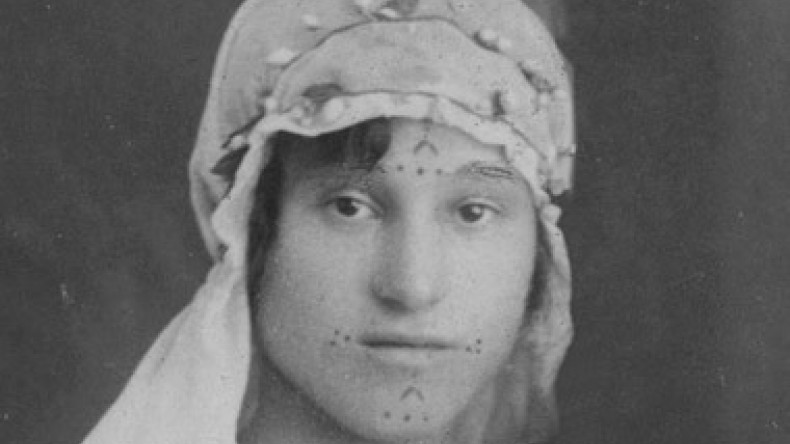
Embossed women, embossed lives: Interview with Suzan Khartalyan (part 2)
On September 21 a film by Suzan Khartalyan, who lives in Sweden, titled “Tattoos of grandma” will be presented in Stockholm. The film tells about Armenian Genocide, the women who survived those years, but happened to have their fates embossed.
“Ermenihaber.am” had an exclusive interview with publicist and director Suzan Khartalyan. Read the second part of the interview below.
-Suzan was your granny talking about her tattoos?
- Never. I remember my granny wearing white gauntlets to hide her tattoos. She was trying hard to hide, to escape her life she used to have in genocide years. She has cleared her memory and we couldn’t speak about it at home. We were hiding that page of her life in darkness. Until 16-17 I knew nothing about genocide. I knew my granny for 20 years, but I knew nothing about her. As if she was, but she wasn’t and in this dilemma she was keeping her secret.
-You said your granny’s sister also had some tattoos. Wasn’t she speaking about it either?
My granny’s sister also had those tattoos. She also refused any talks about it. I used to ask her why she didn’t speak about it, and one day she got angry with me and said: “Do you want me to tell you that Turks have done this? Does it really differ?”
- Did they do those tattoos against the women’s will?
Surely. Nobody asked them about it. There are hundreds of stories how those women were clearing their tattoos after their slavery. Some even used some chemical stuff to clean them.
- How those women managed to live bring those “embossed fates” on their shoulders?
They were rejected by the Armenian men. Yet in 1924 Armenian women were trying to restore their virginity through plastic surgery in Beirut. Those women who were tattooed were rejected by Armenian men; those tattoos told everybody their shared life with other men, with Islam. Some pages of history we’ve been keeping secret because it was shameful.
-Is it possible to show through documentary the emotional part of the issue?
It was very important to show both the emotional part and the facts. The film is interesting when you can find yourself there.
Read also: Tattoos of Grandma – film about Armenian Genocide
Newsfeed
Videos






























